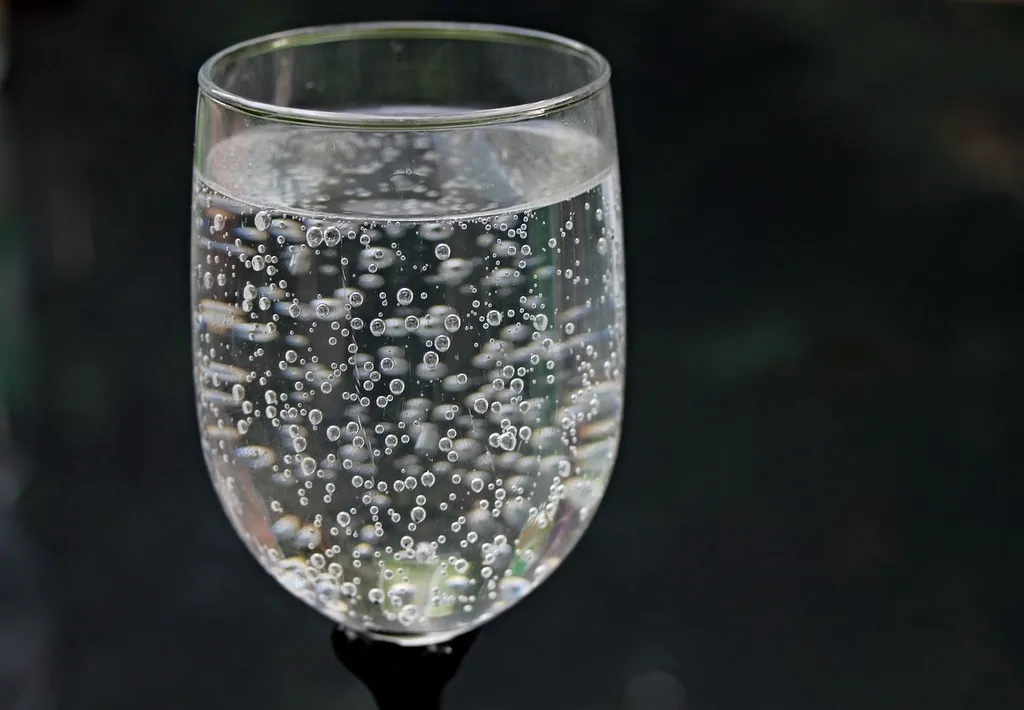Drinking water is important for dogs to keep them from dehydrating. When enjoying a carbonated drink, many dog-owners may wonder whether they can give their dogs some of the sparkling water when natural water is not available.
Dogs should not drink sparkling water as it is not natural for them to do so and can result in digestive issues. When dogs drink sparkling water they risk suffering from indigestion and other problems if taken in great quantities or regularly. Bloating is the most common result.
In this article, the importance of your dog’s water intake, as well as the composition of sparkling or carbonated water, will be explored. We’ll also have a look at what veterinarians and animal nutritionists are recommending.
Canine Water Requirements
Generally, when we think of our dogs’ nutritional needs, we don’t consider water intake as part of the nutritional plan. But enough water is just as important as the protein, fat, carbohydrates, vitamins, and minerals we provide for our dogs.
As a general rule, adult dogs need approximately one ounce of water per pound of body weight every day.
Water is necessary for metabolic processes. According to the American Kennel Club, it is needed for digestion, blood flow, and breathing. Without water, vital organs could be damaged. Water is imperative to regulate a dog’s body temperature, remove harmful toxins, and keep the skin elastic (source).
Your dog’s body is naturally losing water all day. The loss of water results from its continuous sweating through its paws, panting when active, and when they go to the bathroom.
According to veterinarians, the loss of just 10% to 15% of the water in a dog’s body can result in dehydration, and, in extreme cases, death. The water a dog loses needs to be replaced as soon as possible.
Why Shouldn’t My Dog Drink Carbonated Water?
Carbonated water, also known as sparkling or fizzy water, is water containing dissolved carbon dioxide gas artificially injected under pressure. Carbonation causes small bubbles in the water.
Some sparkling water also contains added or dissolved minerals, such as potassium sulfate, potassium bicarbonate, sodium citrate, or sodium bicarbonate (source). Xylitol is also sometimes found in carbonated water, added to give a taste of sweetness to the water.
Xylitol Is Bad for Dogs
An ingredient like the sweetener xylitol is safe for human consumption, but it could be fatal for dogs. In people, xylitol does not influence the release of insulin, but in dogs, it is quickly absorbed into the bloodstream. Insulin is then rapidly released from the dog’s pancreas, which results in a profound decrease in the blood sugar level.
This effect (hypoglycemia) can occur within an hour from the intake of xylitol and could be fatal if not treated. The Center for Veterinary Medicine at the U.S. Food and Drug Administration (FDA) has received numerous reports of dogs being poisoned by xylitol over the years (source).
Carbonated Water and Bloating
Bloating is the most common health issue when your dog drinks carbonated water. When we as humans enjoy and swallow carbonated or fizzy water, we also consume carbon dioxide. In humans, this carbon dioxide is generally belched out of the upper digestive tract before it reaches our stomachs.
A dog normally does not burp, and the carbon dioxide is going directly to the stomach. This carbon dioxide can cause bloat, which is the general term used for two stomach disorders in a dog.
Gastric dilatation (GD), is where the stomach fills with gas. After a time, it dissolves, but the dog experiences pain and distress while bloated. Symptoms include a swollen tummy, vomiting, and obvious signs of pain and distress. Older, overweight, large breed dogs are most at risk.
The second type of bloat is gastric dilatation-volvulus (GDV). This occurs when the gas-filled stomach twists on itself. It causes shock to the body because the gas-filled stomach obstructs blood flow. By pumping the stomach, gastric dilatation can be relieved, but GDV requires surgery to untwist the stomach. If not treated, GDV can be fatal (source).
As a dog owner, it’s best to take steps to prevent bloating by spreading meals across the day and, very importantly, not giving your dog fizzy drinks. Not giving a dog sparkling water is also good for its teeth.
Other Potential Issues
Carbonated water is somewhat acidic, and this acidity could be erosive on the dog’s teeth. To find out more about this, read the article, “Can Dogs Drink Coke?”
Some believe that carbonated water might not be very “diet” friendly for humans and our dogs.
In 2017, a small animal study was undertaken and published where the effects of carbonated water versus still water on ghrelin production were compared. Ghrelin is what is generally known as the “hunger hormone.”
In the experiment, which used small animals, the researchers found that those who only received carbonated water developed elevated ghrelin levels, while those receiving still water had no increase. The group drinking carbonated water also gained weight faster than those given only still water (source).
As far as their relevance to humans is concerned, these results are disputed by others. Still, it is accepted by many veterinarians to be true for animals, including dogs. Thus, a “hidden danger” of giving your dog too much fizzy water could be that it might have an increased appetite, which could lead to overeating.

Final Thoughts
Dogs can drink sparkling water in small amounts. There are not many studies done on dogs and sparkling water, but luckily, sparkling water itself does not contain any immediate toxin.
While it probably won’t hurt your dog if you give him a few sips of sparkling water, it is better not to. Make sure your dog has sufficient filtered or still water available constantly.
Generally, dogs don’t love or drink sparkling water spontaneously. They tend to sniff before they take a drink and, because the bubbles go straight up their sensitive noses, instinctively, many dogs will not drink it.



0 Comments